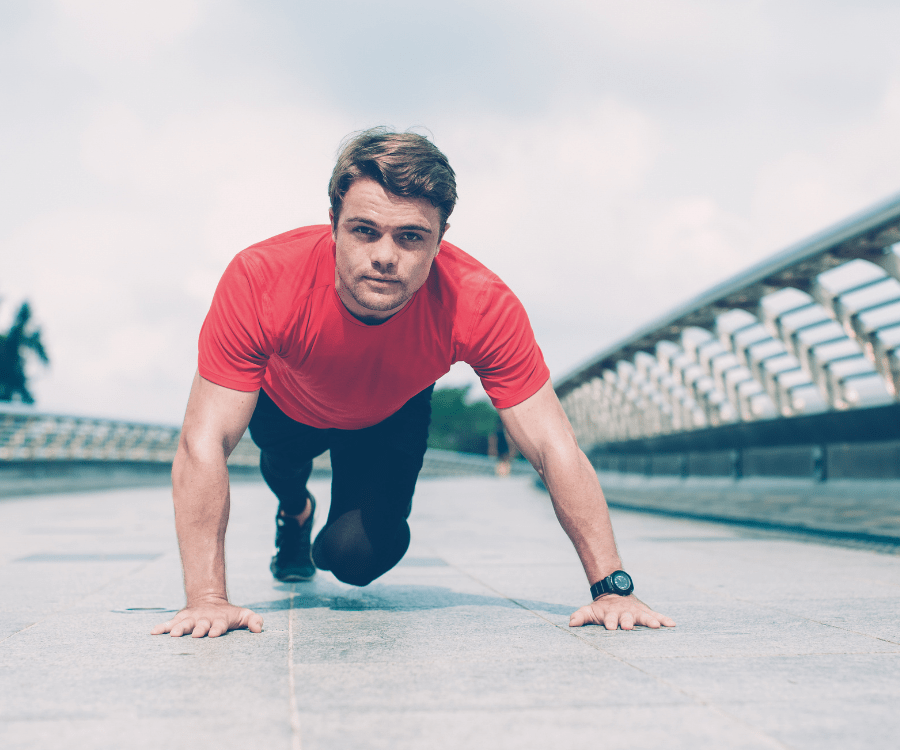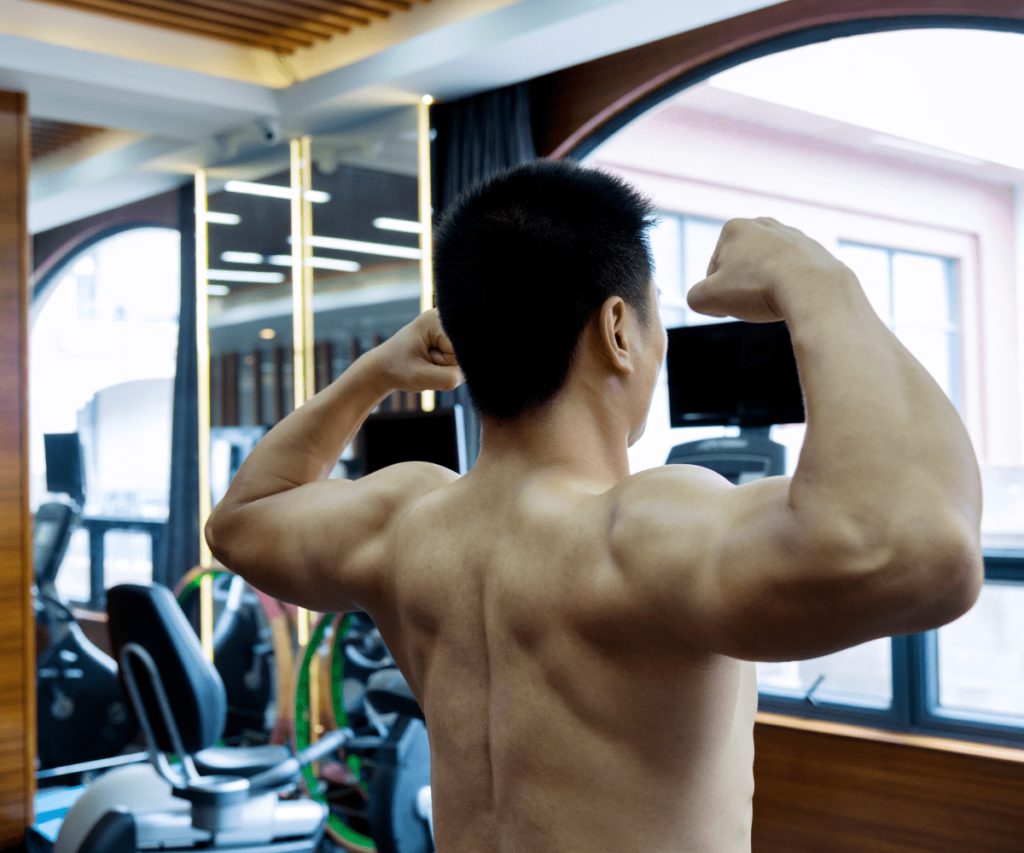Do you feel a “popping” sensation in your back during mountain climbers? Here are potential causes and what you can do about it.

Reviewed by Brian Richards, CPT, CSCS. Last updated 16th December.

Key Takeaways
Have you ever gotten down into the starting position of a Mountain Climber, got your core ready to go, and as soon as you start moving those knees, your back starts to pop? You might be thinking, “What in the world is that, are there no more Mountain Climbers in my future”?
Let’s dissect what is happening when your back pops while doing Mountain Climbers.
If your back pops while doing Mountain Climbers, you do not need to worry. Popping noises are signs that joints may be tight. When you hear a pop while doing Mountain Climbers, it is probably a sign that your back is tight.
This tightness is most likely from the joints and ligaments between each vertebrae of your spine, but it can also be from muscle tightness around your back. While doing a Mountain Climber, your hip bends to bring your leg forwards, as this happens you are stretching a lot of the muscles of your posterior chain, especially your low back and glutes. Your hip flexor muscle, the psoas, may also be a contributing factor to your back popping while doing Mountain Climbers as your hip flexors have direct muscle attachments on to the front of your spine.
As you drive your knee forwards, you are using your tight hip flexor to drive that motion, and “pop” goes your back as this already tight muscle pulls on the front of your tight back. Another contributing factor as to why your back pops while doing Mountain Climbers is poor form. If you lose your neutral spine position and core stability, your hips may rise up into the air.
As your hips rise, your back will round, and this rounding will cause even more pulling throughout the already tight structures of your low back.
Even though you don’t need to worry if your back pops while doing Mountain Climbers, you should take it as a sign that you need to work on your mobility and technique.
How to Avoid Popping of Your Back While Doing Mountain Climbers
To avoid popping of your back, you need to work on dynamic and static mobility activities and self soft tissue release. I say mobility activities instead of stretching because your typical stretching from high school gym class just doesn’t get the job done sometimes.
Dynamic mobility activities consist of actively taking your joints and muscles through their full range of motion. This is done repeatedly without holding for a stretch. These activities are functional and mimic the movement of the activity or sport you are about to perform. Dynamic warm ups are typically used before exercising. A dynamic warm up for your low back and hips is beneficial prior to doing Mountain Climbers, especially if you are experiencing popping in your back.
Here are a few examples of low back and hip dynamic warm up movements:
- Toe touch to overhead reach
- Bodyweight walking lunges
- Walking hamstring “stretch”
- Walking knee to chest “stretch”
Static mobility activities are actually better to perform after exercise. Research has shown that static stretching prior to exercise can cause a decrease in performance. On the other hand, a moderate intensity dynamic warm up has been shown to improve performance. Therefore, do your dynamic warm up, workout, and then work on static mobility and stretching.
Other Research has demonstrated that stretching 5 days a week, for 5-10 minutes total per muscle group a week (not per day), is more beneficial than cramming all of the stretching into 2-3 days. Hold each position for about 20 to 30 seconds.
Here are a few examples of low back and hip static mobility activities:
- Pigeon stretch
- Single knee to chest stretch
- Couch stretch
- Downward dog static hold
Besides dynamic and static mobility activities, self soft tissue release techniques are becoming increasingly popular. Think of your foam roller, Hypervolt, and lacrosse ball. Both of these tools are used for self release techniques. While these tools may not physically increase your mobility, they work to calm down your nervous system, which decreases tension and guarding of the surrounding muscles.
Use these tools around your low back and hips for 30 seconds up to 2 minutes per body region. Follow up with your dynamic warm up and then get working on those Mountain Climbers. After doing all of these mobility activities, you should be able to return to Mountain Climbers without any popping of your low back.
What is a Pop?
Even though you know how to “fix” the pop, you probably still want to know WHY tight muscles and joints cause this pop. What actually is popping?
Your back goes through a quick stretch when driving your knee forwards during the Mountain Climber exercise. Since your joints are surrounded by a synovial fluid that contains gas, you may hear a popping sound as the joints are stretched or “gapped” as the build up in pressure causes the gas to rapidly release. This is the same thing that happens when you crack your knuckles or go to the chiropractor for an adjustment.
A pop is nothing to fear, especially if it is not painful!
Suggested Mobility Routine
If you need guidance on where to go from here, try this routine out to help stop your back from popping during Mountain Climbers:
Foam roll, 1 minute each side
Glutes
Thighs
Lats
Dynamic Warm Up
20 Jumping Jack
10 Toe Touches
10 Air Squats
20 Walking Lunges
15 seconds High Knees
15 seconds Butt Kickers
Repeat 2-3 times
Static Mobility, hold 30 seconds each position for 2-3 repetitions
Couch Stretch
Lizard Lunge
Iron Cross
Child’s Pose
Related Questions
Why do my hips pop when I raise my leg?
This is also probably caused by hip flexor tightness. However, this popping can actually be from your hip flexor tendon “snapping” over bone.
Are Mountain Climbers a good exercise?
Yes! Mountain climbers are a full body workout. They challenge all major muscle groups, working on strength, balance, and endurance.
